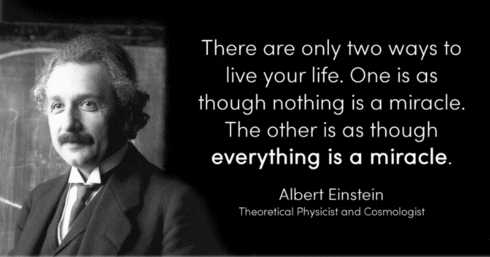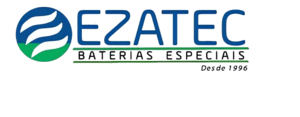No Blog Eletrônica de Potência você encontrará informações sobre teses,artigos,seminarios,congressos,tecnologias,cursos,sobre eletrônica potência. “TEMOS O DESTINO QUE MERECEMOS. O NOSSO DESTINO ESTA DE ACORDO COM OS NOSSOS MERITOS” ALBERT EINSTEIN. Imagination is more important than knowledge, for knowledge is limited while imagination embraces the entire world. EL FUTURO SE CONSTRUYE HOY,EL SUCESSO NO ES FRUTO DE LA CASUALIDAD,SE HUMILDE ,APRENDE SIEMPRE CADA DIA.
AUTOR DO BLOG ENG.ARMANDO CAVERO MIRANDA SÃO PAULO BRASIL

.gif)
“GRAÇAS A DEUS PELA VIDA,PELA MINHA FAMÍLIA,PELO TRABALHO.PELO PÃO DE CADA DIA,POR NOS PROTEGER DO MAL”
“SE SEUS PROJETOS FOREM PARA UM ANO,SEMEIE O GRÂO.SE FOREM PARA DEZ ANOS,PLANTE UMA ÁRVORE.SE FOREM PARA CEM ANOS,EDUQUE O POVO”


https://picasion.com/


segunda-feira, 8 de setembro de 2014
domingo, 7 de setembro de 2014
Ph.D. Thesis Rechargeable lithium battery energy storage systems for vehicular applications PhD. Candidate: Tarun Huria UNIVERSITÀ DI PISA Engineering School “Leonardo da Vinci”
Abstract
Batteries are used on-board vehicles for broadly two applications –
starting-lighting-ignition (SLI) and vehicle traction. This thesis examines
the suitability of the rechargeable lithium battery for both these applications,
and develops algorithms for runtime prediction of the remaining battery
charge.
The largest market-share of rechargeable batteries is for the SLI
application. Lead-acid batteries rule this market presently, although a
handful of lithium SLI batteries have recently appeared on the market. The
practicality of different lithium battery chemistries has been evaluated for
this application over wide-ranging criteria and it has been found that the
batteries based on lithium iron phosphate and lithium titanate oxide
chemistries commercially available in the market are the most suitable.
Lithium SLI batteries would require a higher initial cost and additional
electronic hardware in the form of battery management and thermal
management systems, but would last the life-time of the vehicle. In fact,
with the decrease in the cost of lithium SLI batteries with higher volumes,
over the life-time of the vehicle, the total costs of the existing lead-acid
battery and the lithium battery would be about the same.
LINK
http://www.dsea.unipi.it/Members/huriaw/phd-thesis.pdf
LINK
http://www.dsea.unipi.it/Members/huriaw/phd-thesis.pdf
sábado, 6 de setembro de 2014
Modular Multilevel Converters for HVDC power stations SERBIA, Nicola Institut National Polytechnique de Toulouse (INP Toulouse)
SUMMARY
This work was performed in the frame of collaboration between the Laboratory on Plasma and Energy Conversion (LAPLACE), University of Toulouse, and the Second University of Naples (SUN). This work was supported by Rongxin Power Electronic Company (China) and concerns the use of multilevel converters in High Voltage Direct Current (HVDC) transmission. For more than one hundred years, the generation, the transmission, distribution and uses of electrical energy were principally based on AC systems. HVDC systems were considered some 50 years ago for technical and economic reasons. Nowadays, it is well known that HVDC is more convenient than AC for overhead transmission lines from 800 - 1000 km long. This break-even distance decreases up to 50 km for underground or submarine cables. Over the twenty-first century, HVDC transmissions will be a key point in green electric energy development. Due to the limitation in current capability of semiconductors and electrical cables, high power applications require high voltage converters. Thanks to the development of high voltage semiconductor devices, it is now possible to achieve high power converters for AC/DC conversion in the GW power range. For several years, multilevel voltage source converters allow working at high voltage level and draw a quasi-sinusoidal voltage waveform. Classical multilevel topologies such as NPC and Flying Capacitor VSIs were introduced twenty years ago and are nowadays widely used in Medium Power applications such as traction drives. In the scope of High Voltage AC/DC converters, the Modular Multilevel Converter (MMC), proposed ten years ago by Professor R. Marquardt from the University of Munich (Germany), appeared particularly interesting for HVDC transmissions.
LINK
http://hal.archives-ouvertes.fr/docs/00/94/53/75/PDF/SERBIA_2014.pdf
Power Loss Modeling of Individual IGBT and Advanced Voltage Balancing Scheme for MMC in VSC-HVDC System Gum Tae Son*, Soo Hyoung Lee** and Jung-Wook Park
Power Loss Modeling of Individual IGBT and Advanced Voltage Balancing Scheme for MMC in VSC-HVDC System Gum Tae Son*, Soo Hyoung Lee** and Jung-Wook Park†
Abstract – This paper presents the new power dissipation model of individual switching device in a high-level modular multilevel converter (MMC), which can be mostly used in voltage sourced converter (VSC) based high-voltage direct current (HVDC) system and flexible AC transmission system (FACTS). Also, the voltage balancing method based on sorting algorithm is newly proposed to advance the MMC functionalities by effectively adjusting switching variations of the sub-module (SM). The proposed power dissipation model does not fully calculate the average power dissipation for numerous switching devices in an arm module. Instead, it estimates the power dissipation of every switching element based on the inherent operational principle of SM in MMC. In other words, the power dissipation is computed in every single switching event by using the polynomial curve fitting model with minimum computational efforts and high accuracy, which are required to manage the large number of SMs. After estimating the value of power dissipation, the thermal condition of every switching element is considered in the case of external disturbance. Then, the arm modeling for highlevel MMC and its control scheme is implemented with the electromagnetic transient simulation program. Finally, the case study for applying to the MMC based HVDC system is carried out to select the appropriate insulated-gate bipolar transistor (IGBT) module in a steady-state, as well as to estimate the proper thermal condition of every switching element in a transient state.
LINK
http://www.jeet.or.kr/LTKPSWeb/pub/pubfpfile.aspx?ppseq=1039
terça-feira, 2 de setembro de 2014
Assinar:
Comentários (Atom)





